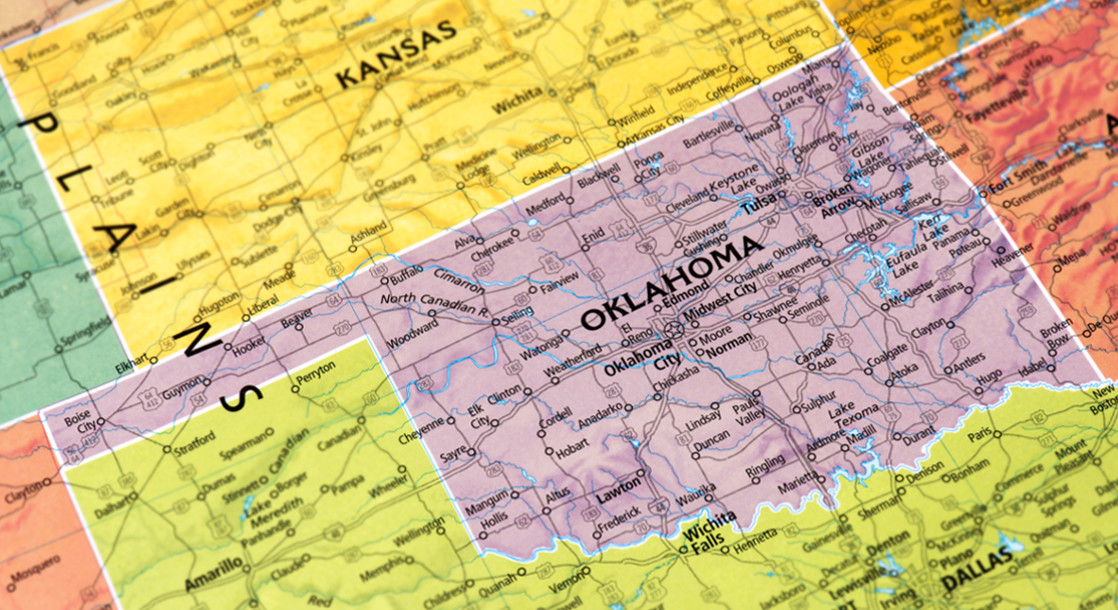Photo via iStock/ omersukrugoksu
If there were an award for the strangest rollout of a medical marijuana program, Oklahoma would have won it this week. Sooner State voters made history last month by approving the most comprehensive medical cannabis program in the U.S., but before it could become law, the state’s health department quickly imposed a number of serious restrictions on the initiative. Things took a bizarre twist this week, as Governor Mary Fallin walked back her support for the most controversial of these new rules, while a top state attorney has been arrested for writing threatening emails — to herself.
In June, a majority of Oklahoma residents voted to approve State Question 788, which will make medical cannabis legal in the state on July 26th. The original ballot measure was unusual in that it did not establish a list of qualifying conditions, allowing licensed doctors to recommend cannabis for any ailment they deem fit. The state's conservative leadership balked at this progressive measure, and the state Board of Health (BOH) voted to add a number of restrictive new regulations to the new law, against the advice of the department's top attorney, Julie Ezell.
The new regulations, which were signed into law by Gov. Fallin last week, ban the sale of all smokable forms of cannabis. The regulations also require all dispensaries to have a licensed pharmacist on staff, and impose THC limits on commercially available cannabis products and even homegrown plants. Last Friday, Rachel Bussett, a local attorney representing eight cannabis advocates, filed a lawsuit against Gov. Fallin, the state health department, and the five BOH members who voted in favor of the ban for allegedly violating the state's Open Meeting Act.
This week, state Attorney General Mike Hunter wrote a letter to the BOH explaining that their new regulations were inconsistent with the language of SQ 788, advising them to reconvene and amend these restrictions. “The board’s role in limiting the forms of marijuana products is confined to food and safety standards that are in line with food preparation guidelines, not prohibiting the sale of smokable, vapable, edible or other forms of marijuana,” said a statement released by Hunter's office.
The two regulations that Hunter said were outside of the BOH's authority were the two most disputed restrictions — the ban on smokable cannabis and the requirement of a licensed pharmacist at every dispensary. On Wednesday, Gov. Fallin issued a statement requesting that the board rescind these two amendments. “My office has received calls and emails since last week’s board action, with most addressing those two amendments,” said Falling, according to Tulsa World. “My legal staff and I are analyzing other points made in the attorney general’s legal letter to see what other action might be necessary.”
"The incumbent Attorney General said in his letter what every Oklahoman already knew: the Health Department overstepped its authority," Gentner Drummond, who is running against Hunter for Oklahoma's top legal post this year, said to Tulsa World. "What he didn't address are the very credible allegations of open meeting violations. The Attorney General has already dismissed one Health Department scandal. Is he now ignoring another?"
The original scandal mentioned by Drummond concerns Julie Ezell, the former general counsel for the health department who initially advised against these controversial regulations. Ezell is now facing criminal charges for sending fake threatening emails to herself, posing as an medical cannabis advocate angered by the adoption of the new rules. "We would hate to hurt a pretty lady. You will hear us," one of these emails read, according to NewsOK. The attorney created the fake email account from her own phone, however — a fact which was quickly discovered by the Oklahoma State Bureau of Investigation (OSBI).
"Ezell confessed to making the [fake] email account and sending the threats to her government email," an OSBI special agent wrote in the charging document. "She acted alone and nobody else knew she was composing the emails and sending them to herself. She forwarded the threats to commissioned law enforcement officers with the Oklahoma Department of Health and continued to falsely report events to OSBI agents during the course of the investigation." Ezell has resigned from her position and turned herself over to authorities.
After this week’s events, it seems increasingly likely that the state government will respect their constituents' wishes and allow SQ 788 to stand largely as written, at least for now. But as strange as this story has been, who knows what could happen next?











